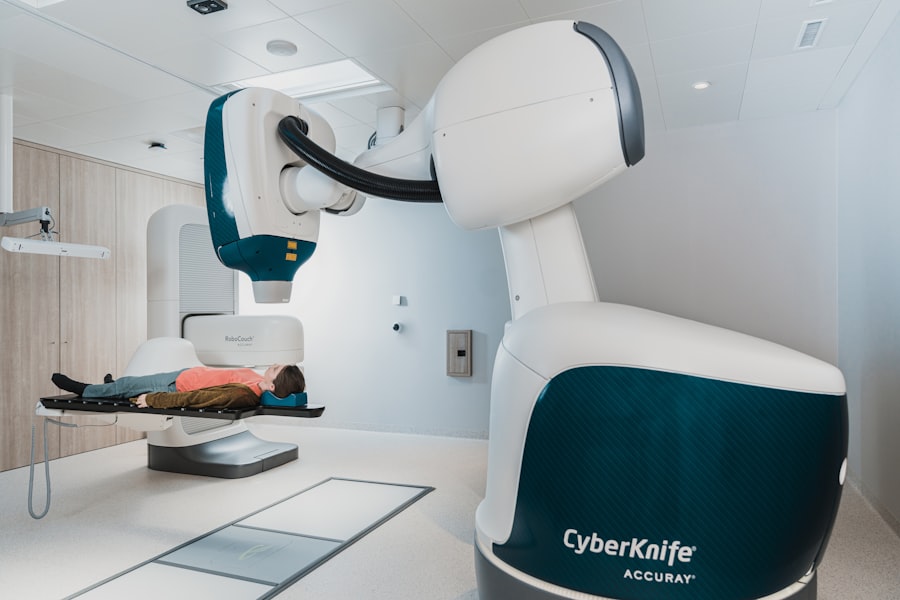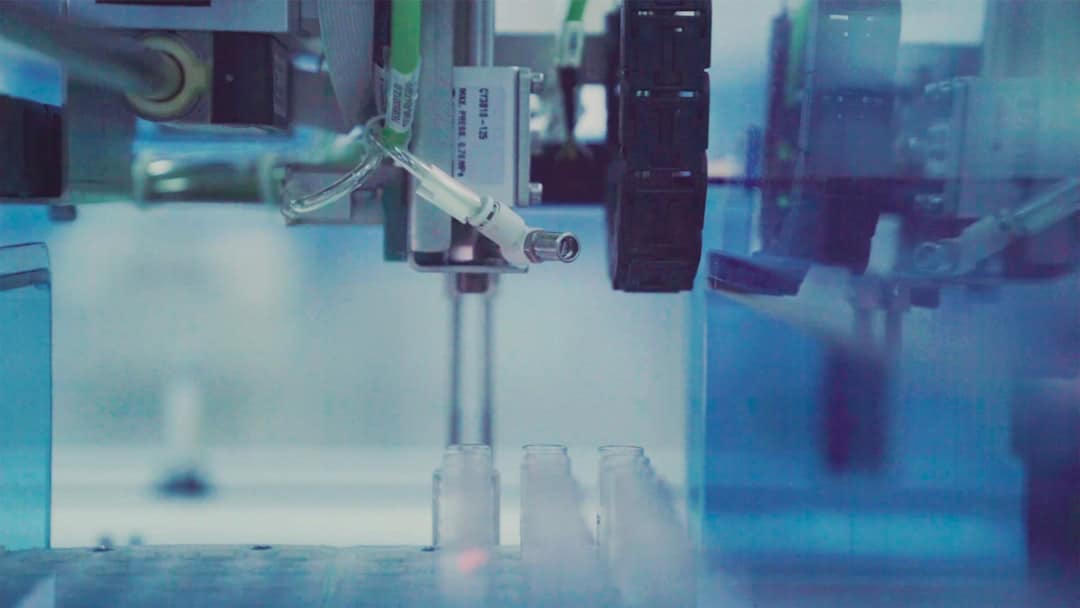Artificial Intelligence (AI) has emerged as a transformative force in various sectors, and healthcare is no exception. The integration of AI technologies into healthcare systems is reshaping how medical professionals diagnose, treat, and manage patient care. From machine learning algorithms that analyze vast datasets to natural language processing tools that assist in clinical documentation, AI is revolutionizing the landscape of healthcare delivery.
The potential for AI to enhance efficiency, accuracy, and patient engagement is immense, making it a focal point of research and investment in the medical field. The adoption of AI in healthcare is not merely a trend; it represents a paradigm shift towards data-driven decision-making. With the exponential growth of health data generated from electronic health records (EHRs), wearable devices, and genomic sequencing, traditional methods of analysis are becoming increasingly inadequate.
AI technologies can sift through this data at unprecedented speeds, identifying patterns and insights that would be impossible for human practitioners to discern. This capability not only streamlines workflows but also empowers healthcare providers to make informed decisions that can significantly improve patient outcomes.
Key Takeaways
- AI is revolutionizing healthcare by improving diagnosis, treatment, and patient outcomes.
- Personalized healthcare is benefiting from AI’s ability to analyze large amounts of data and tailor treatments to individual patients.
- AI-powered diagnosis and treatment are enhancing accuracy and efficiency in healthcare, leading to better patient care.
- AI is playing a crucial role in improving patient outcomes by predicting and preventing diseases, and optimizing treatment plans.
- Ethical considerations in AI-driven healthcare, such as data privacy and bias, need to be carefully addressed to ensure patient trust and safety.
The Role of AI in Personalized Healthcare
Personalized healthcare, often referred to as precision medicine, aims to tailor medical treatment to the individual characteristics of each patient. AI plays a pivotal role in this approach by enabling the analysis of complex datasets that include genetic information, lifestyle factors, and environmental influences. By leveraging machine learning algorithms, healthcare providers can identify specific biomarkers associated with diseases, leading to more targeted therapies that are likely to be more effective for individual patients.
For instance, in oncology, AI can analyze genomic data from tumor samples to identify mutations that may be driving cancer growth. This information allows oncologists to select therapies that specifically target those mutations, rather than relying on a one-size-fits-all treatment approach. Companies like Tempus are at the forefront of this movement, utilizing AI to provide oncologists with actionable insights derived from large datasets of clinical and molecular data.
Such advancements not only enhance treatment efficacy but also minimize the risk of adverse effects associated with less targeted therapies.
AI-Powered Diagnosis and Treatment

The diagnostic capabilities of AI are rapidly advancing, with algorithms now capable of interpreting medical images with remarkable accuracy. For example, deep learning models have been developed to analyze radiological images such as X-rays, CT scans, and MRIs. These models can detect anomalies such as tumors or fractures that may be missed by the human eye.
A notable example is Google’s DeepMind, which has demonstrated that its AI can outperform radiologists in diagnosing certain eye diseases from retinal scans. Moreover, AI is not limited to image analysis; it extends to predictive analytics that can forecast disease progression and treatment responses. By analyzing historical patient data alongside real-time health metrics, AI systems can predict which patients are at risk for complications or hospital readmissions.
This predictive capability allows healthcare providers to intervene proactively, adjusting treatment plans before issues escalate. For instance, algorithms developed by companies like IBM Watson Health can analyze patient records and suggest personalized treatment options based on the latest clinical guidelines and research findings.
Improving Patient Outcomes with AI
The integration of AI into healthcare has shown promising results in improving patient outcomes across various domains. One significant area is chronic disease management, where AI-driven tools can monitor patients’ health metrics continuously. Wearable devices equipped with AI algorithms can track vital signs such as heart rate, blood pressure, and glucose levels in real time.
This continuous monitoring enables timely interventions when abnormalities are detected, reducing the likelihood of severe complications. In addition to monitoring, AI enhances patient engagement through personalized communication strategies. Chatbots and virtual health assistants powered by natural language processing can provide patients with tailored information about their conditions and treatment plans.
These tools can answer questions, remind patients about medication schedules, and even facilitate appointment scheduling. By fostering better communication between patients and healthcare providers, AI contributes to higher levels of patient satisfaction and adherence to treatment regimens.
Ethical Considerations in AI-Driven Healthcare
As the use of AI in healthcare expands, ethical considerations become increasingly critical. One major concern is the potential for bias in AI algorithms, which can arise from the datasets used to train these systems. If the training data lacks diversity or is not representative of the broader population, the resulting algorithms may produce skewed results that disproportionately affect certain demographic groups.
For example, facial recognition algorithms have been shown to have higher error rates for individuals with darker skin tones due to underrepresentation in training datasets. Another ethical issue revolves around patient privacy and data security. The implementation of AI often requires access to sensitive health information, raising concerns about how this data is stored and used.
Healthcare organizations must navigate complex regulations such as HIPAA in the United States while ensuring that patient data is protected from breaches or misuse. Transparency in how AI systems operate and make decisions is also essential; patients should be informed about how their data is being utilized and the implications for their care.
AI and Personalized Medicine

The intersection of AI and personalized medicine is a fertile ground for innovation in healthcare. Personalized medicine seeks to customize healthcare interventions based on individual variability in genes, environment, and lifestyle. AI enhances this approach by enabling the analysis of large-scale genomic data alongside clinical information to identify unique patient profiles.
This capability allows for the development of tailored treatment plans that consider not only the disease but also the patient’s genetic makeup. For example, pharmacogenomics—the study of how genes affect a person’s response to drugs—benefits significantly from AI applications. By analyzing genetic variants associated with drug metabolism, AI can help clinicians determine which medications are likely to be most effective for a particular patient while minimizing adverse reactions.
Companies like 23andMe are leveraging AI to provide insights into how genetic factors influence drug responses, thereby empowering patients and providers to make more informed decisions regarding treatment options.
Challenges and Opportunities in AI-Driven Healthcare
Despite the promising advancements brought about by AI in healthcare, several challenges remain that must be addressed for widespread adoption. One significant hurdle is the integration of AI systems into existing healthcare workflows. Many healthcare providers are hesitant to adopt new technologies due to concerns about interoperability with current systems and the potential disruption to established practices.
Ensuring that AI tools seamlessly integrate into clinical workflows is essential for maximizing their benefits. Additionally, there is a need for robust regulatory frameworks that govern the use of AI in healthcare. As these technologies evolve rapidly, regulatory bodies must keep pace to ensure safety and efficacy while fostering innovation.
Establishing clear guidelines for the development and deployment of AI algorithms will help mitigate risks associated with their use in clinical settings. Conversely, the opportunities presented by AI in healthcare are vast. The potential for improved diagnostic accuracy, enhanced treatment personalization, and better patient engagement creates a compelling case for continued investment in this field.
As technology advances and more data becomes available, the ability of AI systems to provide actionable insights will only grow stronger.
The Future of AI in Personalized Healthcare
Looking ahead, the future of AI in personalized healthcare appears bright yet complex. As machine learning algorithms become more sophisticated and capable of processing diverse datasets—including genomic information, social determinants of health, and real-time patient data—the potential for truly individualized care will expand significantly. The integration of AI into telemedicine platforms will further enhance access to personalized care, allowing patients to receive tailored recommendations regardless of their geographical location.
Moreover, advancements in explainable AI will play a crucial role in building trust among healthcare providers and patients alike. As algorithms become more transparent in their decision-making processes, clinicians will be better equipped to understand and justify the recommendations made by these systems. This transparency will be vital for fostering collaboration between human practitioners and AI technologies.
In conclusion, while challenges remain on the path toward fully realizing the potential of AI in personalized healthcare, the opportunities for innovation are immense. As stakeholders across the healthcare ecosystem continue to collaborate on developing ethical frameworks and integrating advanced technologies into clinical practice, we can anticipate a future where personalized medicine becomes not just an aspiration but a standard practice in delivering high-quality care tailored to individual needs.
For those interested in the intersection of technology and healthcare, exploring how AI is advancing personalized healthcare solutions is crucial. While the specific focus of our discussion is on healthcare, it’s also beneficial to understand how AI is being integrated across different sectors. For example, in the automotive industry, AI is significantly impacting advancements in self-driving technology. A related article that discusses this in the context of Tesla’s self-driving capabilities can be found here: Tesla Refutes Elon Musk’s Timeline on Full Self-Driving. This article provides insight into the challenges and developments in AI technology, which parallels the complexities and innovations found in AI-driven healthcare solutions.
FAQs
What is personalized healthcare?
Personalized healthcare refers to the customization of medical treatment and healthcare services to individual patients. It takes into account a patient’s unique genetic makeup, lifestyle, and environmental factors to provide tailored and targeted healthcare solutions.
How is AI advancing personalized healthcare solutions?
AI is advancing personalized healthcare solutions by analyzing large amounts of patient data to identify patterns and trends that can help in predicting and preventing diseases. AI also helps in developing personalized treatment plans and medication regimens based on individual patient data.
What are some examples of AI in personalized healthcare?
Some examples of AI in personalized healthcare include predictive analytics for disease prevention, genetic testing and analysis for personalized treatment plans, virtual health assistants for patient engagement, and AI-powered medical imaging for early disease detection.
What are the benefits of AI in personalized healthcare?
The benefits of AI in personalized healthcare include improved accuracy in diagnosis and treatment, better patient outcomes, reduced healthcare costs, and more efficient use of healthcare resources. AI also enables proactive and preventive healthcare interventions.
What are the challenges of implementing AI in personalized healthcare?
Challenges of implementing AI in personalized healthcare include data privacy and security concerns, regulatory and ethical considerations, integration with existing healthcare systems, and ensuring the trust and acceptance of AI technology by healthcare professionals and patients.

